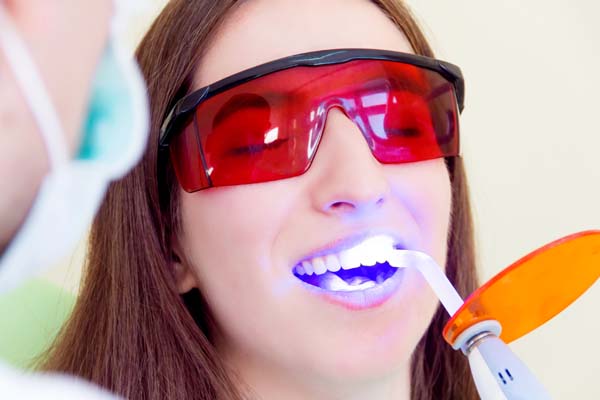How a Dental Sealant Can Prevent Cavities

A dental sealant is a thin coating of composite resin that protects your teeth from decay. It is applied to the pits and grooves of your teeth’s biting surfaces, preventing bacteria, food particles, and acids from getting into them.
Dentists are more likely to recommend dental sealant for teeth in the back of the mouth like your molars and premolars since they are the hardest to clean and have the most extensive biting surfaces.
Dental sealants combined with good oral hygiene can protect teeth from decay for up to five years. Follow-up treatments can be performed as needed to increase how long the treatment lasts.
Preventing cavities with dental sealant
The location of molars and premolars in the back of the mouth makes them harder to clean than the rest of your teeth. Their deep grooves and pits also trap more food particles, giving oral bacteria what they need to make acids that cause cavities.
Children are more likely to struggle with adequately cleaning their molars, increasing their risk of decay. Dentists often recommend covering a child’s permanent teeth with sealants as soon as they emerge. Children between the ages of six and eleven who do not have sealants on their teeth are three times more likely to develop cavities.
Sealants are only applied to the biting surfaces of teeth, not their smooth sides. Brushing twice a day and flossing once daily are often enough to keep these areas free from decay.
Dental sealants are also recommended for adults with teeth that are more susceptible to decay. For example, wisdom teeth that are deemed necessary can be protected with sealants. There are two main types of dental sealants: composite resin and glass ionomer.
Composite resin: These are the more common type of sealant. They are made from resins like those used for dental bonding. It comes in liquid form, and it is hardened with a curing light. The material sticks better to teeth than glass ionomer sealants and protects teeth for up to 10 years
Glass ionomer: These types of sealants release fluoride into the patient’s teeth, helping to strengthen their enamel while preventing acids from reaching their grooves and pits. This makes them more effective at preventing cavities. However, they do not last as long as composite resin sealants
The process
Placing sealants on a patient’s teeth starts with examining their mouth, looking for issues like existing cavities. Any decay detected is treated before starting the procedure.
The patient sits down on a dental chair while the dentist cleans and dries their teeth. An etching gel is used to roughen the teeth being treated, so the sealant sticks better to them. The patient’s teeth are cleaned and dried again, and the sealant is brushed onto their teeth’s biting surfaces. The liquid sealant is hardened with ultraviolet light to complete the process.
Prevent cavities with dental sealants
Dental sealants are a safe and effective way to prevent cavities. Call or visit our Griffin clinic to set up an appointment with our dentist.
Request an appointment here: https://addevalefamilydentistry.com or call Addevale Family Dentistry at (770) 430-3087 for an appointment in our Griffin office.
Check out what others are saying about our dental services on Yelp: Dental Sealants in Griffin, GA.
Related Posts
Are you thinking about getting dental sealants? While this preventive dental treatment is commonly used on children's teeth to prevent the formation of cavities, it can also protect adults' teeth. According to WebMD, dental sealant is a thin plastic coating painted on the chewing surfaces of teeth, usually the back teeth, to prevent tooth decay.Understanding…
Dental sealants offer patients a powerful defense against cavities. General dentists present this option to patients who need a little help preventing tooth decay. According to the American Dental Association, sealants are safe.Dental sealants provide extra protection to teeth, especially for those more prone to tooth decay. Preventing decay is essential to one's good oral…
A preventive dentist can protect your mouth from different ailments. This dental care professional can perform treatments that can keep your teeth and gums healthy. Regular visits can ward off serious dental problems later on. Here are the details about visiting a preventive dentist for good oral health.The main goal of this field is to…
Preventive dentistry involves using the right products. This includes selecting the right toothpaste. There is a type of toothpaste for every person. If you want to enhance your preventive dentistry brushing strategy, here are some tips on choosing the right toothpaste.The attending dentist will be the judge of the most suitable toothpaste. The dentist knows…
